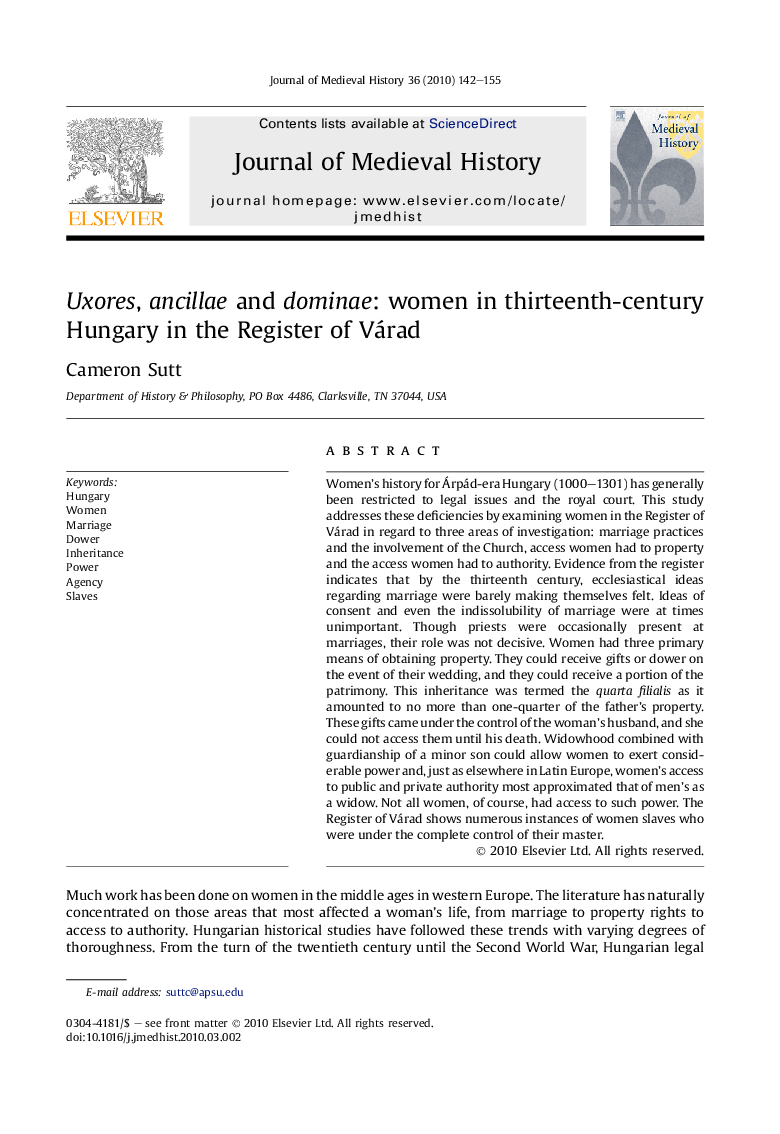| Article ID | Journal | Published Year | Pages | File Type |
|---|---|---|---|---|
| 1160163 | Journal of Medieval History | 2010 | 14 Pages |
Abstract
Women's history for Árpád-era Hungary (1000-1301) has generally been restricted to legal issues and the royal court. This study addresses these deficiencies by examining women in the Register of Várad in regard to three areas of investigation: marriage practices and the involvement of the Church, access women had to property and the access women had to authority. Evidence from the register indicates that by the thirteenth century, ecclesiastical ideas regarding marriage were barely making themselves felt. Ideas of consent and even the indissolubility of marriage were at times unimportant. Though priests were occasionally present at marriages, their role was not decisive. Women had three primary means of obtaining property. They could receive gifts or dower on the event of their wedding, and they could receive a portion of the patrimony. This inheritance was termed the quarta filialis as it amounted to no more than one-quarter of the father's property. These gifts came under the control of the woman's husband, and she could not access them until his death. Widowhood combined with guardianship of a minor son could allow women to exert considerable power and, just as elsewhere in Latin Europe, women's access to public and private authority most approximated that of men's as a widow. Not all women, of course, had access to such power. The Register of Várad shows numerous instances of women slaves who were under the complete control of their master.
Related Topics
Social Sciences and Humanities
Arts and Humanities
History
Authors
Cameron Sutt,
